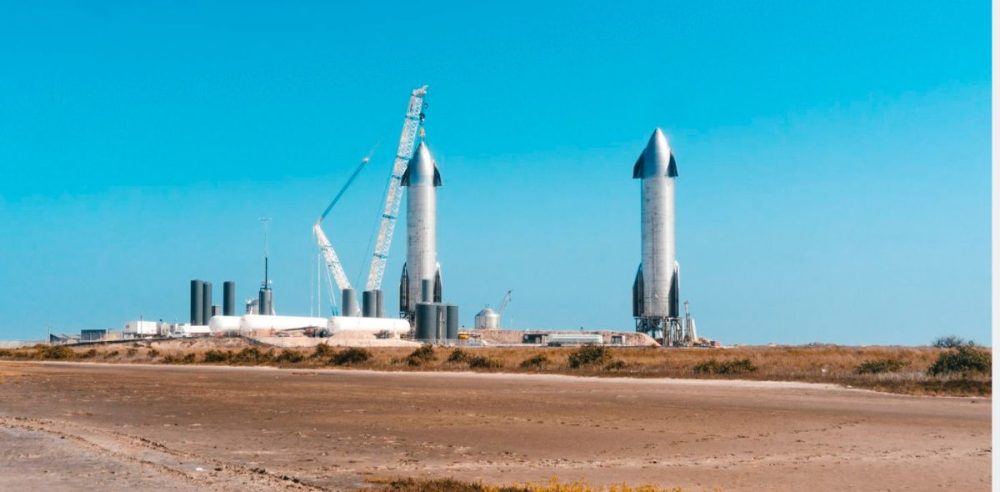SpaceX’s presence in Boca Chica, Texas, has dramatically reshaped the landscape, literally and economically.
Founded by Elon Musk, SpaceX has invested more than $3 billion into its expanding rocket production facility, located just a short drive from Brownsville.
The structures along State Highway 4 represent a leap into the future of space exploration, reported USA Today.
Residents like Gilberto Salinas, the CEO of Brownsville’s economic development arm, express excitement about being part of such a groundbreaking industry. Salinas, who describes the rocket launches as awe-inspiring, believes SpaceX is ushering in a new era of deep-space exploration. This sentiment is echoed by many, as the region has become the focal point for cutting-edge space technologies, including Musk’s ambitious plans to send humans to Mars.
However, not everyone is enthusiastic about SpaceX’s arrival in South Texas.
Nansi Guevara, a Brownsville-based visual artist, has voiced concerns about the environmental impact of the spaceport, particularly on local wildlife. Guevara and other activists worry that the construction of launch pads and facilities has disrupted the natural habitat of endangered species such as the Kemp’s ridley sea turtle and local ocelots. In addition, the influx of highly paid-workers from other states has driven up the cost of living in the region, resulting in higher rents and property taxes for longtime residents. These shifts have led some to question whether the promises of local economic benefits are truly reaching the people who need them most.
Despite the growing opposition, SpaceX remains steadfast in its commitment to minimizing its environmental impact.
According to the company, it has implemented over 200 measures to monitor and protect the local environment, reported USA Today. These efforts include ongoing health assessments of local flora and fauna and partnerships with organizations like Sea Turtle Inc., which focuses on protecting endangered sea turtles.
SpaceX also takes part in community clean-up initiatives around the Boca Chica area, contributing to the local environment in ways that go beyond the company’s direct operations. However, for critics like Guevara, these actions may not be enough to offset the environmental and social costs associated with the rapid expansion.
The developments at Boca Chica are far from just environmental.
SpaceX’s operations have transformed the region’s economy, creating over 3,400 jobs and generating significant tax revenue, per USA Today. According to SpaceX’s figures, the venture has brought in more than $800 million in taxes for local and state governments while attracting nearly $100 million in tourism to the area.
The SpaceX facility has become a state-of-the-art complex featuring two office towers and expansive rocket production buildings. These structures, spanning over 350 acres, serve as the headquarters for SpaceX’s ambitious space program and starkly contrast the desolate tidal flats that once defined the area.
For local business owners, such as Barton “Bic” Bickerton of the Hopper Haus Bar & Grill in nearby Port Isabel, SpaceX has become a major economic driver.
Bickerton’s bar is a popular gathering spot for space enthusiasts and SpaceX employees, especially during launch days. With a dedicated “BARBASE” section painted on the exterior and special space-themed brews like “Lucky Launch” Lager, the bar fills up with visitors eager to witness rocket launches.
For Bickerton, these moments represent the convergence of science, technology, and community, bringing people worldwide to witness history in the making. His business thrives during these events, underscoring the broader impact of SpaceX’s presence on the local economy, per USA Today.
While the economic benefits of SpaceX’s operations are undeniable, the long-term consequences for the local community remain a point of contention.
As the company ramps up its operations, including plans to increase rocket launches to 25 per year, concerns about the sustainability of growth and its impact on residents persist. Environmental watchdog groups worry that SpaceX’s proximity to a delicate ecosystem, including the Rio Grande delta, could lead to irreversible harm. Additionally, some residents fear that the growing number of high-paying jobs filled by people from out of state will further displace the working-class community, raising questions about the future of affordable housing and local employment.
Despite these concerns, SpaceX continues to move forward with its plans, fueled by Musk’s vision for the future of space travel. The company has launched its powerful Starship rocket multiple times, and Musk has expressed his intention to relocate SpaceX’s rocket-building operations from California to Texas. This shift reflects Musk’s broader strategy to establish South Texas as a central hub for space exploration. Local authorities and business leaders hope this will provide even more opportunities for the region’s residents. However, some remain cautious about the long-term impact on the environment and the community.
As the future unfolds in Boca Chica, Texas, the region stands at a crossroads between progress and preservation. SpaceX’s ambitious goals for space exploration have undoubtedly transformed the local economy, bringing jobs, tourism, and investment to an area that was once overlooked. Yet, the challenges of balancing environmental stewardship with rapid economic growth remain a key concern for many.


